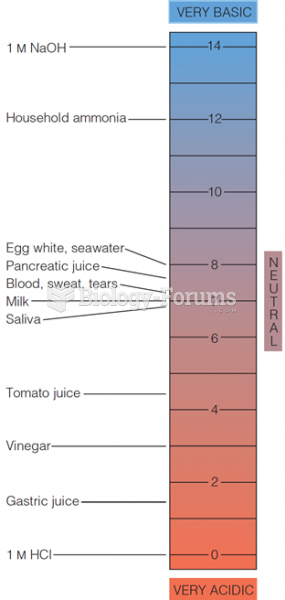|
|
|
Excessive alcohol use costs the country approximately $235 billion every year.
The Centers for Disease Control and Prevention (CDC) was originally known as the Communicable Disease Center, which was formed to fight malaria. It was originally headquartered in Atlanta, Georgia, since the Southern states faced the worst threat from malaria.
To prove that stomach ulcers were caused by bacteria and not by stress, a researcher consumed an entire laboratory beaker full of bacterial culture. After this, he did indeed develop stomach ulcers, and won the Nobel Prize for his discovery.
On average, the stomach produces 2 L of hydrochloric acid per day.
Blastomycosis is often misdiagnosed, resulting in tragic outcomes. It is caused by a fungus living in moist soil, in wooded areas of the United States and Canada. If inhaled, the fungus can cause mild breathing problems that may worsen and cause serious illness and even death.
 In 2013, Americans learned that the federal government massively surveys their phone calls and e-mai
In 2013, Americans learned that the federal government massively surveys their phone calls and e-mai
 If necessary, connect a battery charger to the battery before starting the compression test. It is ...
If necessary, connect a battery charger to the battery before starting the compression test. It is ...
 Using a vacuum hose and a grounded test light to ground one cylinder at a time on a DIS. This works ...
Using a vacuum hose and a grounded test light to ground one cylinder at a time on a DIS. This works ...




